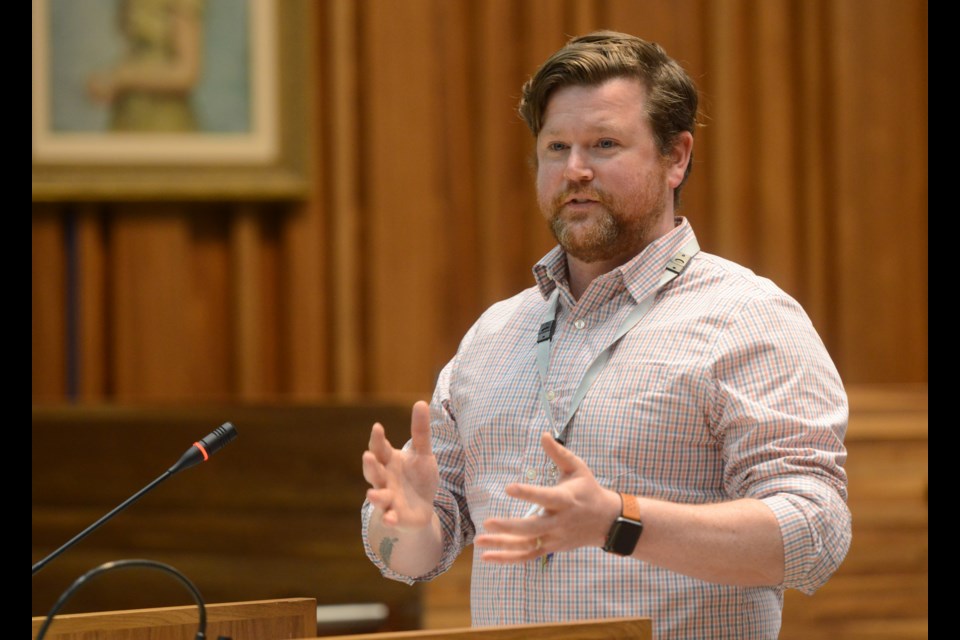Myrna Hutchison had no idea her son Steven was struggling. No one did.
"This is not your fault," Steven, an 18-year-old student at Brock University, wrote in a note before he died by suicide in 2013.
Still, she and everyone asked "what could I have done?"
"Where did we, as parents, go wrong?" Hutchison said she and her husband asked. "For us, there was an instant and associated guilt that came with losing our son to suicide."
Preventing suicide: Let's Talk About It was the title of this year's Mayor's Mental Health Day event, a tradition started by former mayor Joe Young in 2000 that sees the city's mayor host a Mental Health Day event each year at city hall.
Hutchison was one of three speakers at the event, joining Scott Grant, a social worker who facilitates suicide intervention groups who spoke about his own experiences with mental health, and Cecilia Marie Roberts, who leads suicide prevention efforts for the Canadian Mental Health Association of Waterloo Wellington.
"I often try to think of what we could have done differently, how we could have helped or what we could have done or said to Steven if he'd only reached out to tell us or if we had recognized he was struggling."
Her son was a high achiever, athletic and good in school.
There were not the tell-tale warning signs often associated with those struggling. He didn't become reclusive, give possessions away, stop eating, sleep more or struggle in class.
"He was living what would be a regular teenager's life," his mom said.
Despite this, inside he was struggling.
"Take notice and take the first step to help them," Hutchison said of those who know people who are struggling.
"In hindsight, I would want Steven to know that nobody in this world, not even us, has a perfect life and that there are times when we all have to work through or struggle through a difficult or dark time in our lives.
"I would want him to know that there is absolutely no problem in this world that's too big for us not to solve together."
Hutchison founded #GetInTouchForHutch in the wake of her son's death, a youth mental health awareness and advocacy foundation that "shares the message of hope" and offers tools for people struggling.
#GetInTouchForHutch has also provided 44 buddy benches to schools: places where those looking for a friend can sit in the playground and others know to reach out.
"Today I come to encourage us all with us being okay with us being not okay, and that it is okay to start talking about it," Hutchison said. "We need to bring the silence out of the shadows."
Reach in, she said, when others can't reach out.
"You do not need to have all the answers, just make that connection," Hutchison said.
Grant told the audience his world "got pretty scary" when he started having suicidal thoughts while finishing up his education 10 years ago.
But by reaching out for help, and eventually finding the right counsellor after 10 tries, he said he got the help he needed.
"Listen to your body. Feelings have meaning and purpose. Our feelings are trying to communicate with us," he said.
He called his diagnosis "a blessing in disguise."
"There is hope," Grant said.
Roberts said "suicide is about pain. Where that pain comes from is different for every one of us."
But she said two-thirds of us won't seek help because of the stigma surrounding mental health.
"It drives that person underground," Roberts said.
